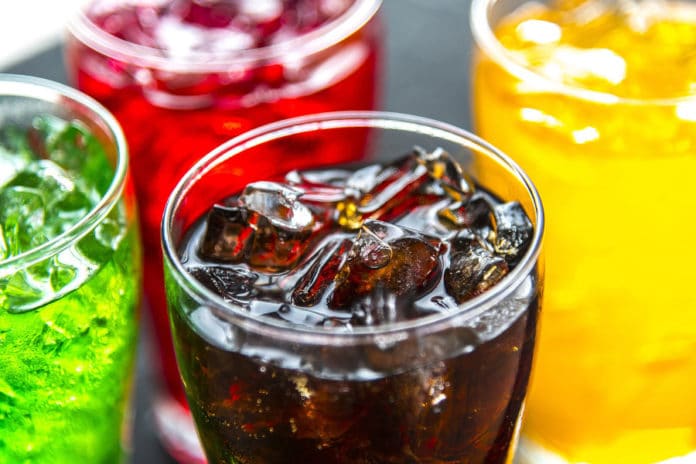Sugar-sweetened beverages (SSB) are drinks with added sugar, including non-diet soft drinks/sodas, flavored juice drinks, sports drinks, sweetened tea, coffee drinks, energy drinks, and electrolyte replacement drinks. The calories in sugar-sweetened beverages can contribute to weight gain and provide little to no nutritional value.
Sugar-sweetened beverages do not fill you up the same way that food does. Those extra calories can lead to other health risks, including obesity, tooth decay, heart disease, and type 2 diabetes.
Now, in a recent study by the Harvard T.H. Chan School of Public Health, scientists found that the more sugar-sweetened beverages (SSBs) people consume, the higher their chances of premature death.
On the other hand, drinking one artificially sweetened beverage (ASB) per day instead of a sugary one lowered the risk of premature death. However, drinking more than four ASBs per day could lead to mortality in women.
SSBs, particularly carbonated and noncarbonated soft drinks, fruit drinks, energy drinks, and sports drinks — are the single largest source of added sugar in the U.S. diet.
Although SSB consumption in the U.S. has dropped over the past decade, there’s been a recent uptick among adults, with intake levels from SSBs alone nearly exceeding the dietary recommendation for consuming no more than 10 percent of daily calories from added sugars. SSB intake is also rising in developing countries, spurred by urbanization and beverage marketing.
For the study, scientists analyzed data from 80,647 women participating in the Nurses’ Health Study (1980‒2014) and 37,716 men in the Health Professionals Follow-Up Study (1986-2014). Participants answered questionnaires about their lifestyles and health status for both studies every two years.
After adjusting for major diet and lifestyle factors, the researchers found that the more SSBs a person drank, the more their risk of early death from any cause increased. Compared with drinking SSBs less than once per month, drinking one to four sugary drinks per month was linked with a 1 percent increased risk; two to six per week with a 6 percent increase; one to two per day with a 14 percent increase; and two or more per day with a 21 percent increase. The increased early death risk linked with SSB consumption was more apparent among women than among men.
There is a strong association between drinking artificially sweetened beverages (ASBs) and the risk of early death. If replacing SSBs with ASBs was linked with a moderately lower risk of early death. They also found a link between high intake levels of ASBs and slightly increased risk of both overall and CVD-related mortality among women, so they cautioned against excessive ASB consumption.
Walter Willett, professor of epidemiology and nutrition, said, “These findings are consistent with the known adverse effects of high sugar intake on metabolic risk factors and the strong evidence that drinking sugar-sweetened beverages increase the risk of Type 2 diabetes, itself a major risk factor for premature death. The results also provide further support for policies to limit marketing of sugary beverages to children and adolescents and for implementing soda taxes because the current price of sugary beverages does not include the high costs of treating the consequences.”
Other Harvard Chan study authors included Yanping Li, Eva Schernhammer, and Frank Hu.
Also Read: Energy drinks linked to sudden cardiac arrest
Funding for the study came from research grants UM1 CA186107, UM1 CA176726, UM1 CA167552, P01 CA87969, P01 CA055075, R01 HL034594, HL088521, HL35464, and HL60712 from the National Institutes of Health.
Journal Reference
- Vasanti S. Malik, Yanping Li, An Pan, Lawrence De Koning, Eva Schernhammer, Walter C. Willett and Frank B. Hu. Long-Term Consumption of Sugar-Sweetened and Artificially Sweetened Beverages and Risk of Mortality in US Adults. 18 Mar 2019 Circulation DOI: 10.1161/CIRCULATIONAHA.118.037401.
